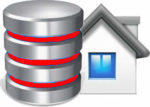Fourth Edition by Steven Feuerstein
Oracle PL/SQL programming is a legend of a book, I remember using the 1st edition of this book when I was just starting out in the world of Oracle programming. I remember this book had everything I needed including learning about dynamic SQL and DBMS packages, and it still has everything you could want in a PL/SQL book.
This edition is the Fourth Edition and also the 10th Anniversary Edition, it version has been updated and now includes all the new features of Oracle 10g to Release 2. Oracle PL/SQL Programming now spans nearly 1,200 pages and covers areas such as PL/SQL programming structures, data types, sql in pl/sql, dynamic sql, functions, procedures, packages, triggers, application security, globalization, using object orientated pl/sql, calling java from pl/sql and external procedures.
Steven Feuerstein is a guru of pl/sql and he certainly knows his stuff, the great thing about the book is that he has added really useful code that can be used in real life situations, doing this proves what can be performed by the area of Oracle that is being discussed.
With more functionality being added to Oracle with every release it must be harder and harder for new programmers to learn all the aspects of Oracle PL/SQL, but if you read this book cover to cover then you will know most of what it can do.
Oracle PL/SQL Programming is a great book to purchase whether you want to read it cover to cover or have it on your bookshelf for reference, as believe me you will reach for it time and time again.
If you cannot afford to get PL/SQL training at Oracle then why not purchase this book and teach yourself through the writings of the next best thing to an Oracle course, the best PL/SQL book by Steven Feuerstein.
